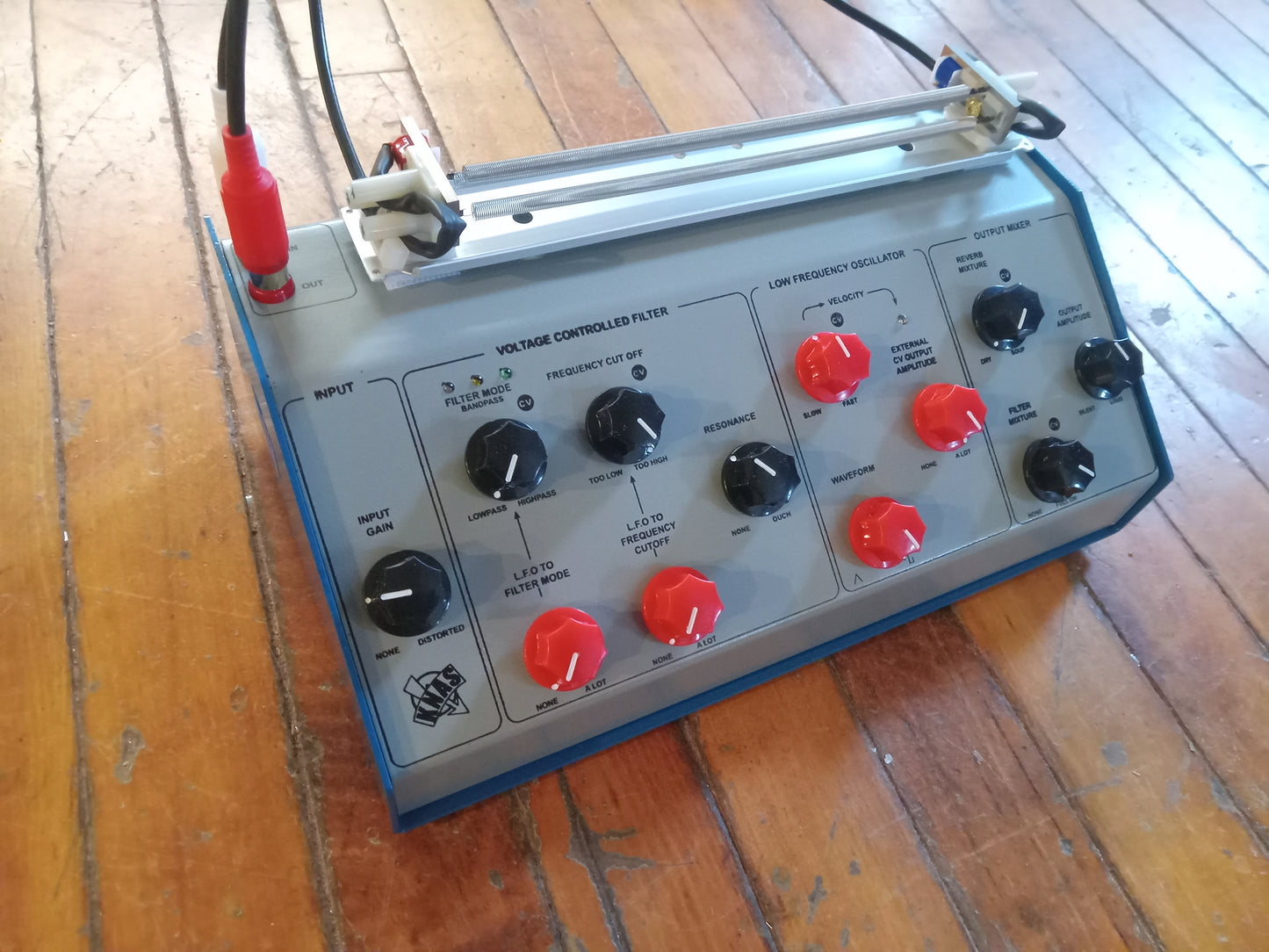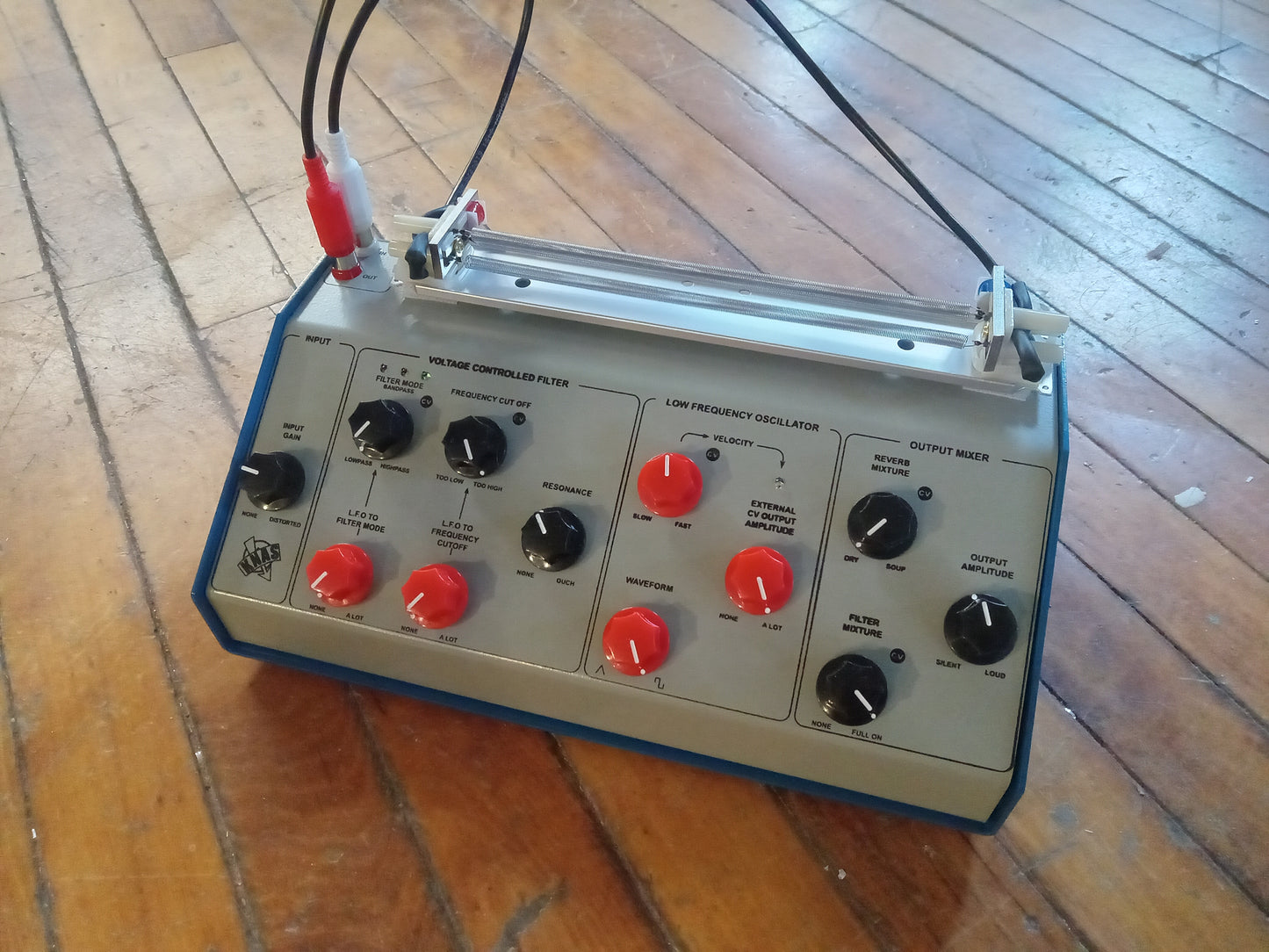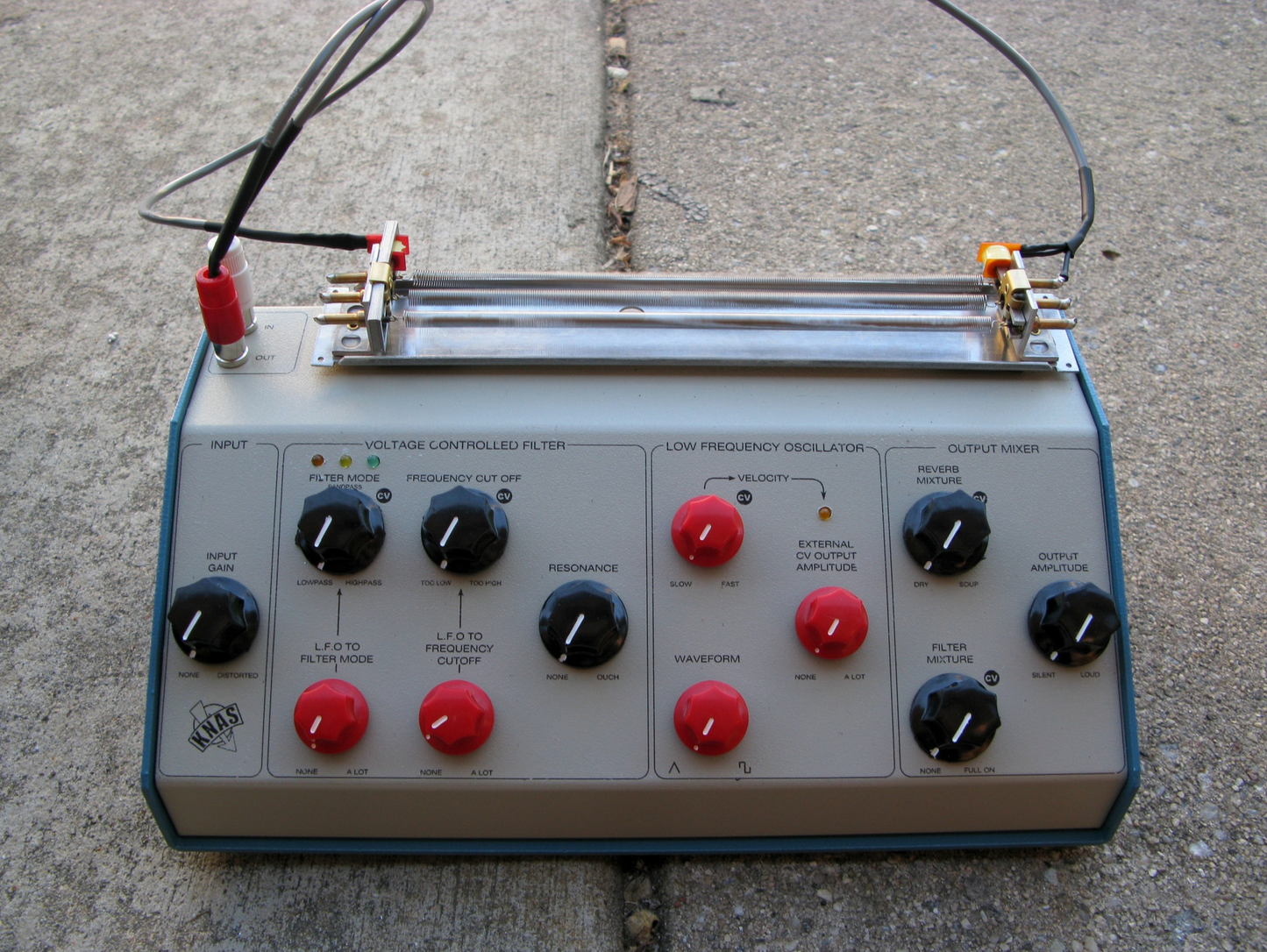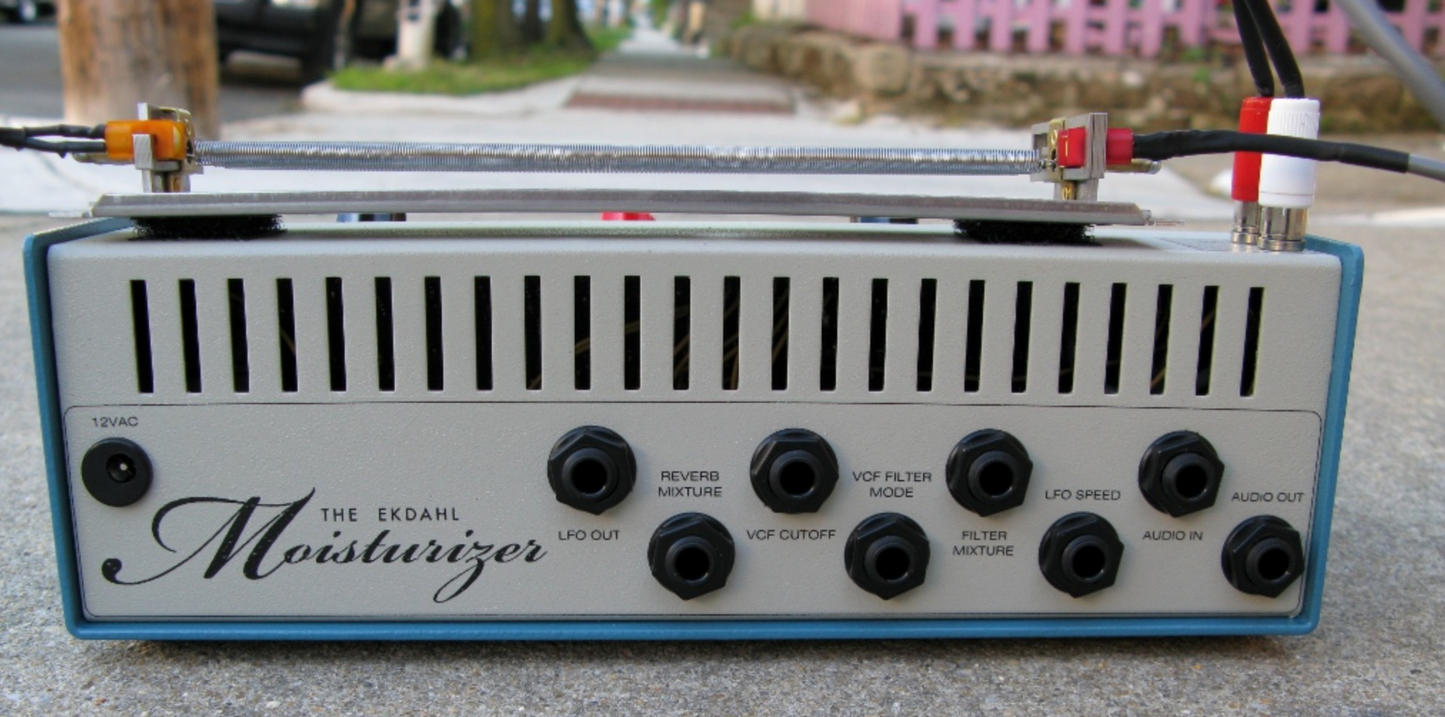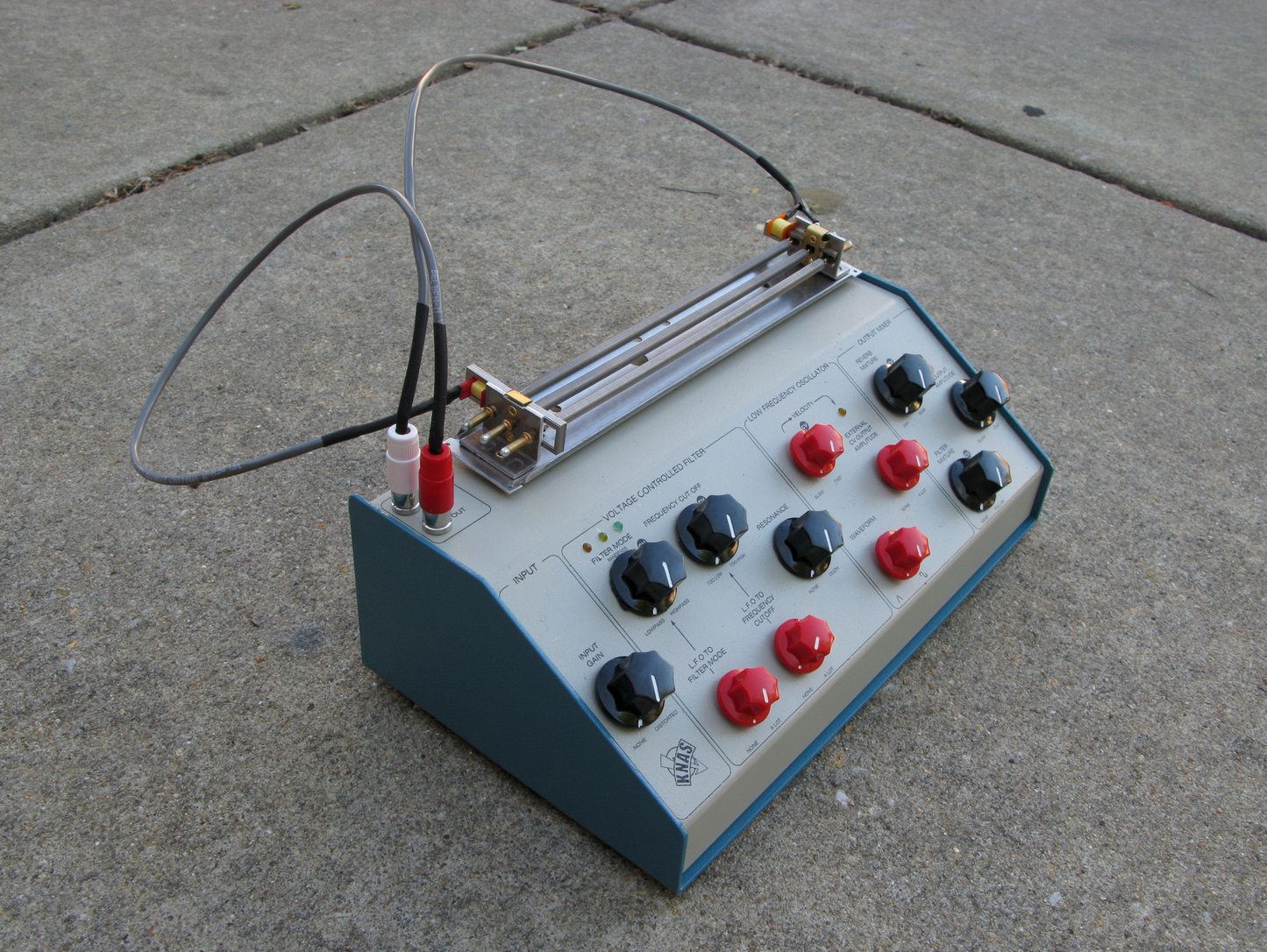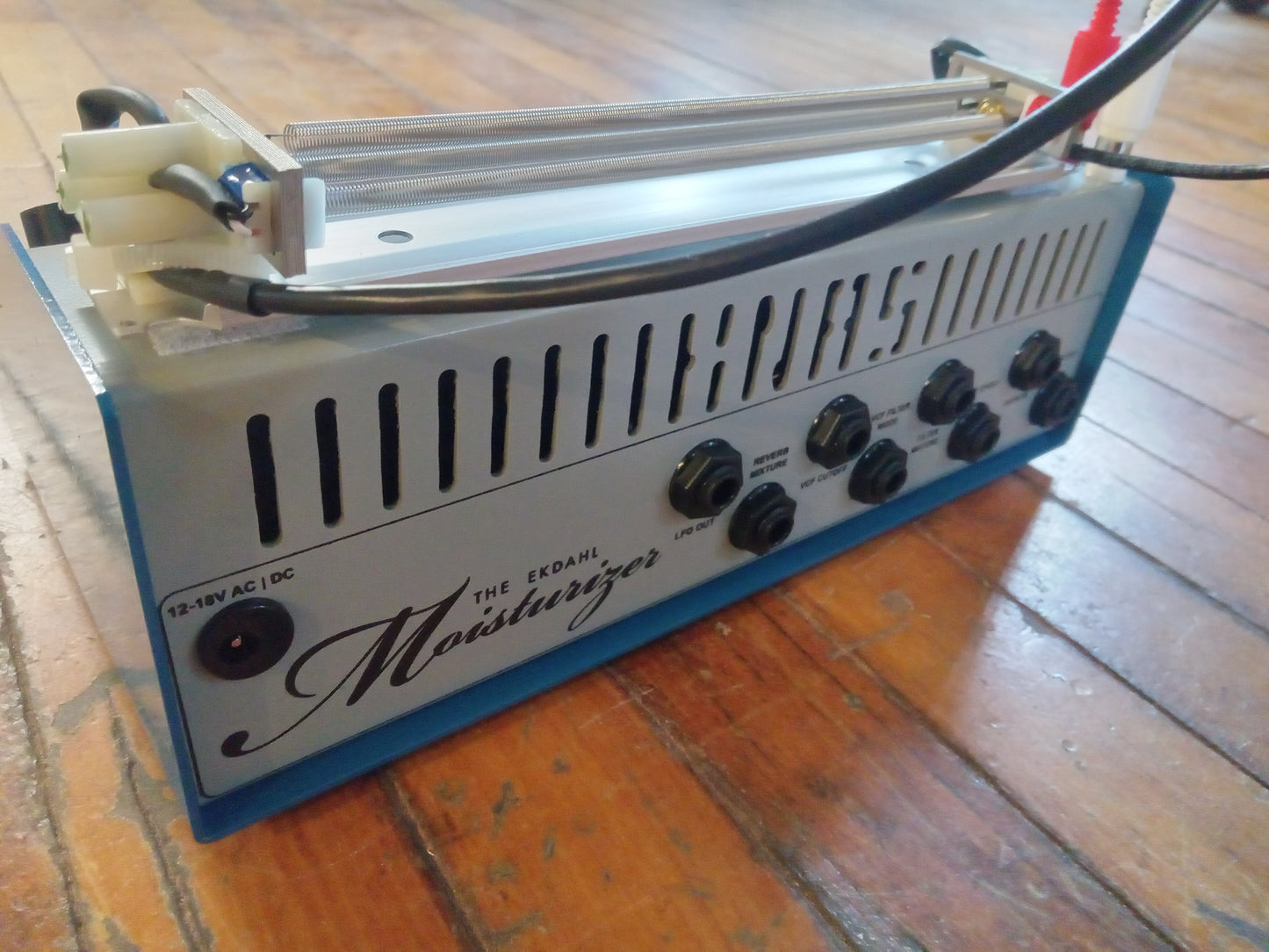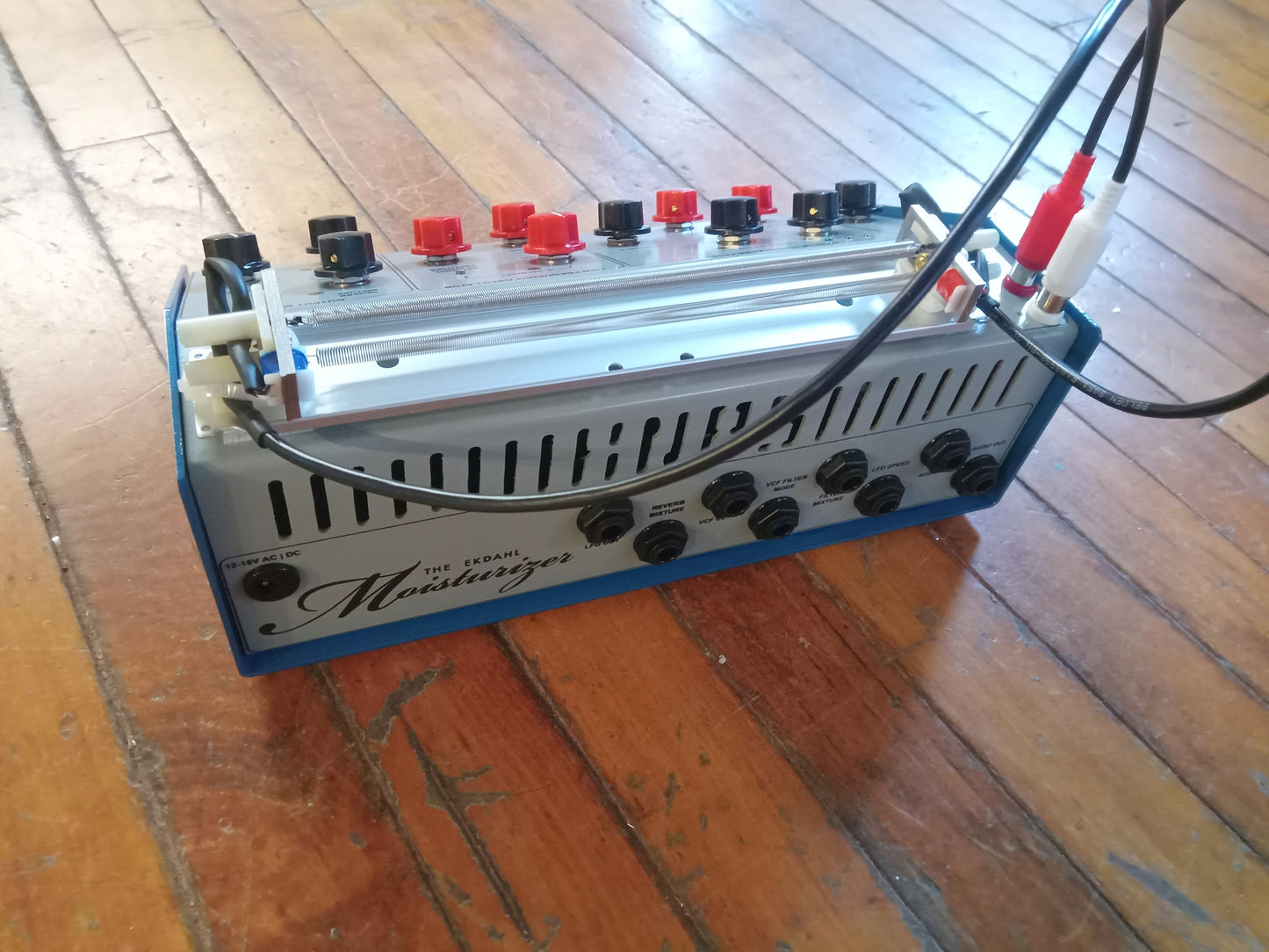Knas
Ekdahl Moisturizer
Ekdahl Moisturizer
Verfügbarkeit für Abholungen konnte nicht geladen werden
It's a Classic!
In Stock in Both Stores!
It comes with a PSU :)
Analog CV controlable spring reverb!
Basically, the Ekdahl Moisturizer is a spring reverb where the springs are exposed so they can be played/hit/fiddled with. As well as being capable of creating sound in itself, you can of course also play sound through the springs like a regular spring reverb - this makes for happy-fun-time finger-modulation of the reverb on whatever audio that's going through it. On top of this there's an analog multimode filter that can be used to attenuate or exaggerate certain frequencies in the sound, this is real handy while playing the springs as you can - for instance - cut all the highs and just make thunderous doomy sounds or do the opposite; cut all the lows and make that ear piercing high frequency special love. Also, it incorporates an LFO that's internally routable to the filter and that also has some external routing-stuff. The Ekdahl Moisturizer has tons of CV / Expression pedal options on the back for even more hillarious moments. The Moisturizer is a mono unit.
The Moisturizer was developed with the help of Jason Willett (Half Japanese, Leperchaun Catering), Martin Schmidt (Matmos, Instant Coffee), Joshua Atkins (Polygons, Major Powers), mom & dad and many more.
The Ekdahl Moisturizer contains exactly:
- Preamp (up to 10 times gain)
- Reverb
- Reverb / Preamp wet/dry crossfader (Knob & CV/EP controllable)
- State variable filter with
- Lowpass/Bandpass/Highpass seamless crossover (Knob, CV/EP & LFO controllable)
- Cutoff (Knob, CV/EP & LFO controllable)
- Resonance (WITHOUT resonance limiter)
- LFO with
- Speed control (Knob & CV/EP controllable)
- Square / Triangle crossover
- External output with output amplitude knob
- Filter / No filter wet/dry crossfader (Knob & CV/EP controllable)
Here's a block diagram:
The preamp section is designed for a max of 10 times gain, this to accomodate for low level output instruments such as guitars etc. The reverb tank has normal reverb signal gain on it, meaning that if you hit the springs hard they'll distort like crap which is real nice, if you hit them softly the sound won't be distorted.
The filter in the Ekdahl Moisturizer is abrasive, the fact that it doesn't have any resonance limiting makes it possible to get the filter to sound *really* bubbly & metallic (way more then any filter i've ever heard), but it's also of course capable of sounding completely "normal" - it all depends on the amount of resonance and/or gain. The fact that you can seamlessly fade inbetween lowpass, bandpass or highpass filter (or lowpass+bandpass and highpass+bandpass) makes the unit pretty damn versatile and by using the wet/dry filter/no filter crossfader there's some neat shit that can be done too. Now it should be said that due to the fact that there's no resonance limiter, if using very high gain, with high resonance and turning the cutoff frequency very high the filter might cut out - not to worry, just turn the cutoff back a bit and the filter pops in again. This happens because the filter gets overloaded and can be avoided with a resonance limiter, however if i had one of those all the super-awesome bounce would be gone and it'd sound like all the other filter out there.
The Ekdahl moisturizer has six CV/Expression pedal related jacks on the back, one of them is a LFO output so you can control other shit with The Moisturizer's LFO. All the other jacks are inputs and takes either CV or Expression pedal, they are: Reverb Mixture, VCF Cutoff, VCF Filter Mode (LP/BP/HP), Filter Mixture and LFO Speed.
The spring reverb tank is fastened to the unit using self-adhesive velcro. This came about because I and Martin were discussing how to protect the springs while in transport and we realized that if it was detachable that'd be the best way. The tank is connected to the rest of the unit using RCA connectors, the reason for this is because that has been the standard for connecting reverb tanks since the 60's (i think). In *theory* you could connect any reverb tank to the ins/outs but I take *no* responsibility if you manage to blow your Moisturizer up (shouldn't be able to happen but gotta cover my ass). One of the neat thing with the velcro is that you choose which side to have your cables on; the front or the rear, if choose rear, the pickup of the springs is on the left side, if you choose front, the pickup of the springs are on the right side. This solved Martin's and my little argument about how it for him was very important of having the cables on the back, and for me very important to have the pickup on the right.
Preferably i wanted to do an internal power supply and skip the whole wall-wart, however this was abandoned due to the fact that once i start poking with mains i enter a completely different liability zone and also it would be a small complication to (inexpensively) make it work on all different mains existing in different countries.
